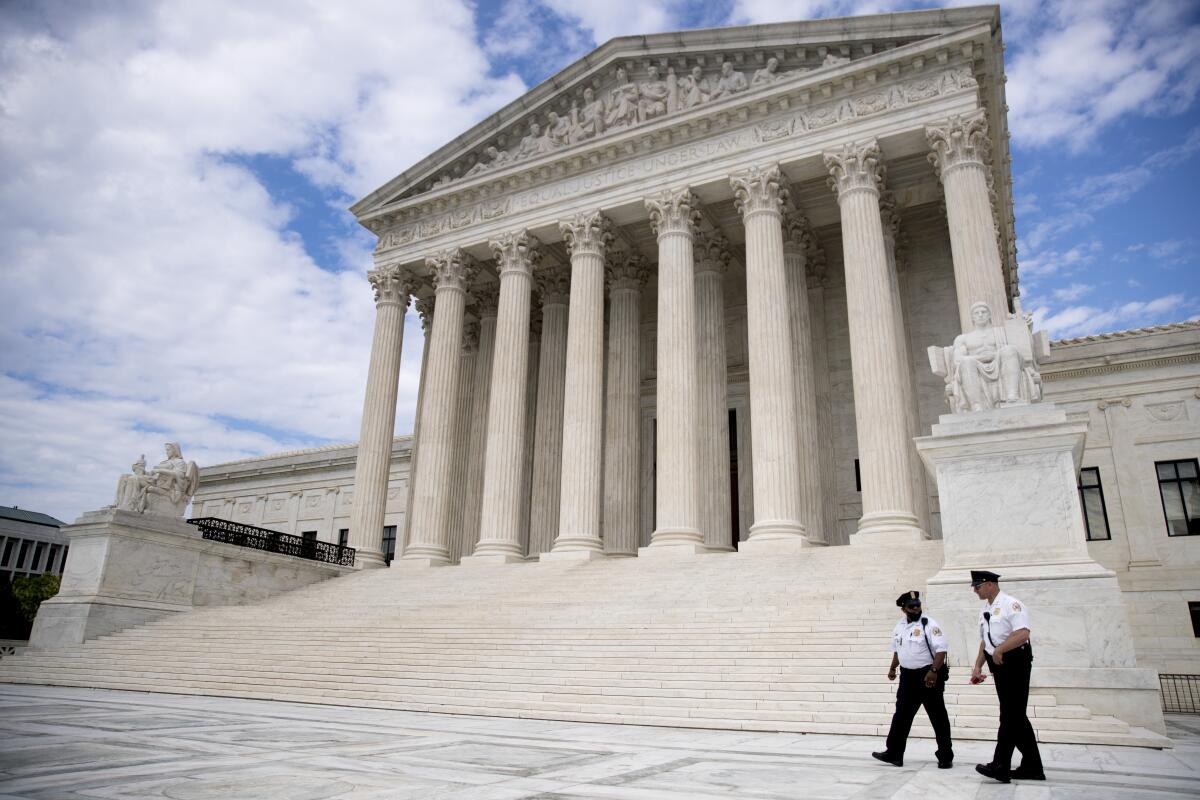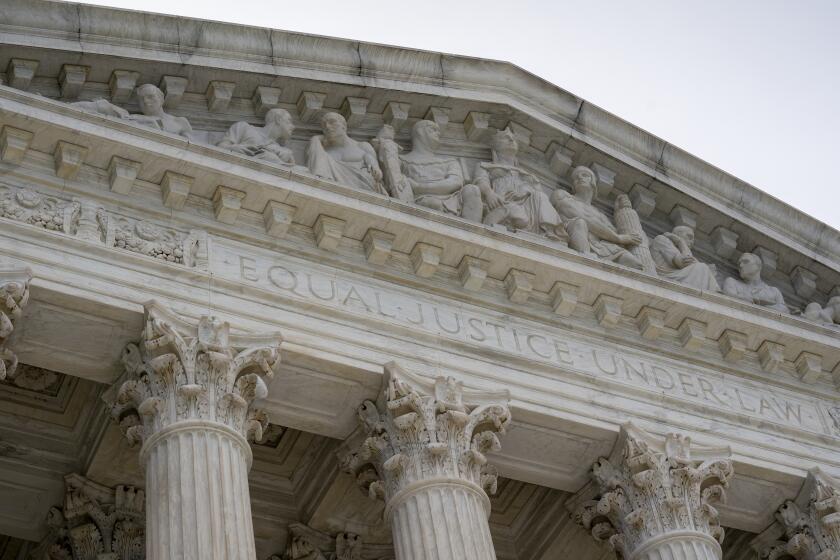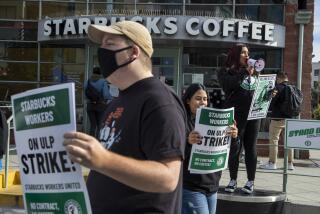Supreme Court rules for Nestle and Cargill in child slave labor suit

- Share via
WASHINGTON — The Supreme Court on Thursday sided with food giants Nestle and Cargill in a lawsuit that claimed they knowingly bought cocoa beans from farms in Africa that used child slave labor.
The justices ruled 8-1 in favor of the food companies and against a group of six adult citizens of Mali that claimed they were taken from their country as children and forced to work on cocoa farms in neighboring Ivory Coast.
The justices said an appeals court was wrong to let the group’s lawsuit go forward.
The Supreme Court on Tuesday made it harder — again —for victims of human rights violations to seek justice in American courts.
“Although respondents’ injuries occurred entirely overseas, the Ninth Circuit held that respondents could sue in federal court because the defendant corporations allegedly made ‘major operational decisions’ in the United States. The Ninth Circuit erred by allowing this suit to proceed,” Justice Clarence Thomas wrote in a majority opinion for the court.
The case had been twice dismissed at an early stage before being revived by the U.S. 9th Circuit Court of Appeals. When the case was argued in December, then-President Trump’s administration backed Nestle and Cargill.
The Philadelphia case posed a clash between a church’s claim of religious freedom and a city’s commitment to equal rights for LGBTQ residents.
The argument of the group from Mali was that Minneapolis-based Cargill and the American arm of Switzerland-based Nestle “aided and abetted” their slavery as children by, among other things, buying cocoa beans from farms that used child labor. The group sued seeking to bring a class-action lawsuit on behalf of themselves and who they say are thousands of other former child slaves.
Nestle and Cargill have said they have taken steps to combat child slavery and have denied any wrongdoing.
The case involves a law enacted by the very first Congress in 1789, the Alien Tort Statute, which permits foreign citizens to sue in U.S. courts for human rights abuses. The question for the justices was whether it permits lawsuits against American companies.
The high court in recent years has limited the use of the Alien Tort Statute. In 2018, the court ruled that foreign businesses cannot be sued under the law. In that case, the court rejected an attempt by Israeli victims of attacks in the West Bank and Gaza to use U.S. courts to sue Jordan-based Arab Bank, which they said helped finance the attacks.
More to Read
Sign up for Essential California
The most important California stories and recommendations in your inbox every morning.
You may occasionally receive promotional content from the Los Angeles Times.












